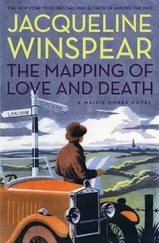With my hand betoweled and my soul a little mad with pessimism about the current ways we live, and with gaiety, heroism, and the spring wound, I phone my wife at her office. She makes more money than I do.
Advice, sympathy, information from my wife’s assistant while I am waiting for my wife to end a meeting. It is possible that even the assistant makes more money than I do. (I am a schoolteacher.) She says that in the stores is a helping-the-blood-clot-and-disinfectant-and-anesthetic spray; and there are clutch bandages. But: “Beware,” she says, “the spray depletes the ozone layer, and the clutch bandage harms circulation.” The finger may turn Nuprin-yellow, crocus-yellow, coward’s yellow.
The conversation with my wife is out of a melodramatic domestic novel, except that at work she is Nietzschean. I refer to her being possessed by the will-to-power.
My wife says, “How deep is the cut?”
“I think I see the bone.”
She says, “Do you see any white?”
“Yes.”
“That’s the tendon. Bones aren’t white while you’re still alive. They’re not white until you clean them after you rob them from a grave. You may have cut the tendon. Can you move it?”
“No. Yes. It looks like a bone.”
“It isn’t the bone. But there are nerves in there—”
“Is that true? That’s not just hypochondria?”
“You should be able to see only one nerve, unless it’s a really big cut—do you see it?”
“See the nerve?”
“It’s a thing, it’s visible.”
“What does it look like?”
“A thread. Does it make you sick to look at the wound?”
“No. What makes you think that?”
“Well, take a look and tell me what you see.”
There is a silence and then she calls out, “Hey, hey, hey.”
“I fainted a little. I’m sort of on my knees here. Hold on, let me get up. Whoo, that was stupid. What I saw was gray-white; there’s quite a lot of gray-white. I suppose I saw blood but it looked gray-white and blood isn’t gray-white, it’s bluish, I remember, I—”
“You’re in shock. Is there anyone with you?”
“I was cutting a tomato.”
“Yes?”
“Someone is coming over—someone will be here soon. You. But you can’t come home. You’re at work. Should I go get a clotting spray?”
“Go to the emergency room at the hospital. You did this call?”
“I don’t remember,” I say miserably.
“You cut your thumb?”
“Yes. I guess so. Unless this is all a dream,” I say hopefully.
“Did you dial with your left hand?”
“I wrapped my hand in a towel and I squeezed the towel with the other hand. I dialed with my little finger. It’s touch-tone, the phone is.… I think.”
“I forget if there are large numbers on the touch-tone phone or small ones.”
“Tiny, really.”
“Are they stubborn or easy?”
“Stubborn.”
“Then if you dialed and didn’t bleed all over the phone you’re probably O.K.”
“Would you say you were showing sympathy?”
“You may quiver with madness and shock at my saying this, but I promise that if you stay overnight at the hospital I will bring you volumes of Kundera, Solzhenitsyn, Havel, so you can see what horror and suffering truly are.”
“Shit.”
“On the other hand, our Maltese doorman’s sister-in-law died of sepsis after a knife cut in her hand which she got chopping beets when she was visiting her mother-in-law in Valletta. Wait for me. I’m coming home.”
My wife is a Spring Goddess. A Nietzschean Nightingale (Florence). “Here,” she says. “Let me look.… A kiss won’t make that well. Let’s go.” A kiss or two later, as we pass a homeless guy who at first I think is me in the third person hailing a taxi, and as my shock begins to lift, I say to her, sadly, “When I was a child, I had a Swiss barometer with a wooden house on it. The house had two doors. Out of one came a boy in shorts and with a Tyrolean hat on, and I think a girl in a dirndl came out of the other. They went inside if it was going to rain.” Nowadays I suppose you might have a homeless person carved in wood and sleeping on a subway grating to indicate good weather and going into an arcade or a subway to indicate rain.
Some prose written after the third kiss from her (and after the doctor took three stitches in my thumb). I sit at her desk in her office looking out her large window: Give me the huge actual clouds of the Republic and not the meager udders of water vapor painted on the old backdrops the Republic Studios used in John Wayne’s day. We like the actual big baggy clouds of a New York spring. One doesn’t want to flog a transiting cloud to death, but if we are to have sentimental light, let us have it at least in its obvious local form—dry, white, sere, and, I guess, provincial. The spiritual splendor of our drizzly and slaphappy spring weather, our streets jammed with sneezing pedestrians, our skies loony with bluster are our local equivalents of lilac hedges and meadows.
Blustery, raw, and rare—and more wind-of-the-sea-scoured than half-melted St. Petersburg. Yuck to cities that have an immersed-in-swamp-and-lagoon moist-air light. They are for watercolorists. Where water laps at the edges of the stones and bricks of somewhat wavery real estate is not home. Home is New York, stony and tall: its real estate is real.
So is its spring.
At dawn, in the suffusion of light and return of visibility, in the woods where I camped out on my red-and-blue air mattress in a nylon shed-tent, open in front and partly at the sides and with a now luminous rooflet tied overhead to two guardian trees, I woke. The light and mist among the tree trunks, the near silence of the birds, the biological, organic clutter around me on the ground softened my mood.
I have a streak of biological piety. These are my woods, set high in the northern Catskill Mountains, not very high mountains. They are not very old woods, any more than are the woods in the adjacent state park. All this territory was lumbered over twice in the last two hundred years. In this glade, only two trees are particularly large, and one is a sycamore planted a hundred years ago and one is a pine about the same age.
The light makes the blue nylon a holy color, like a tone in a Bellini painting, like the color of a cloak of the Madonna; it is a glowing, Bellini blue, and it fills me with awe. The side of the mountain that descends, that falls, is on my right. Behind the descending columns of trunks of trees—saplings, and older, bigger trees—is a vast space of now luminous, as-if-new air.… In a harsh world, this silent, glowing beauty, this ordinary, momentary prettiness, is, as I said, a speechless, pagan piety.
Suddenly fully wakeful, straightening my clothes, lighting my spirit stove, I contemplate my situation. I light a cigarette; I am a dying man. I have an inoperable brain tumor. The process of finding this out took nearly two months. And I am being let go at work, in a harsh process—the company has been sold and is losing money or not making enough; the errors have been those of top management, some of whom are being let go as well. I am one step down from top management, and my work on this level has been successful—in the general debacle this has aroused jealousy, rage really, even hatred. I may have been too distracted by the headaches I was having to handle things well. Was I arrogant? No. I was rather meek and apologetic. But I went on being right, and lo, a vicious war.
I am thirty-five years old, divorced, not estranged from my children, but they are turning into people very like my wife, whom I don’t miss. It is a kind of programmatic, thought-out, mind-filled selfishness, a self-willed sort, not shallow, not stupid, not even cold: more like an intelligent Episcopalian tantrum among theories of selflessness and God knows what all. I mean it is this in my ex-wife and children that isolates me.
Читать дальше












